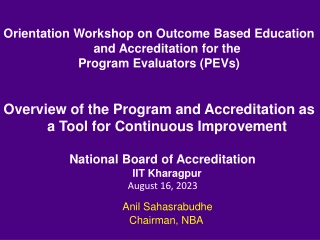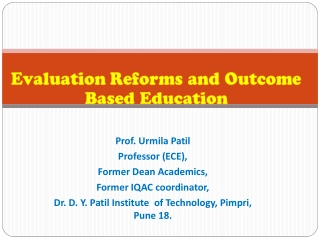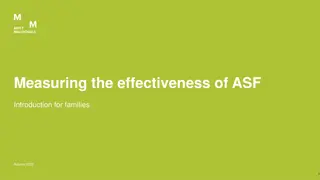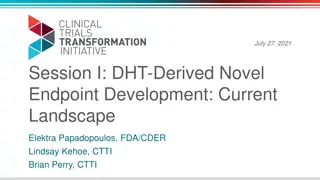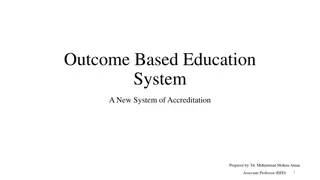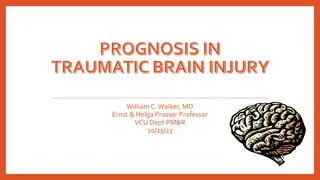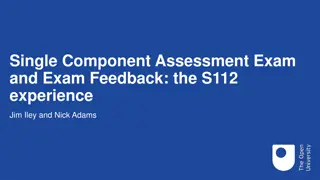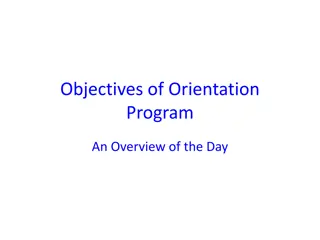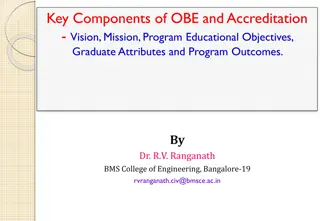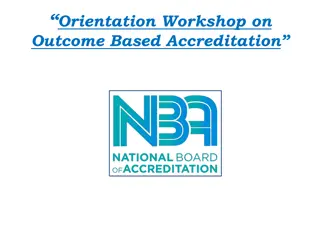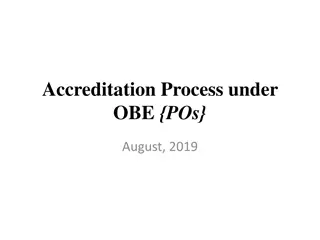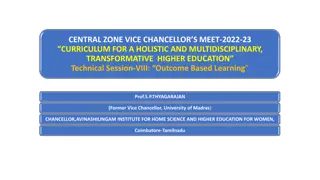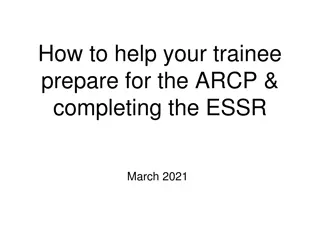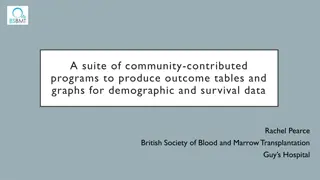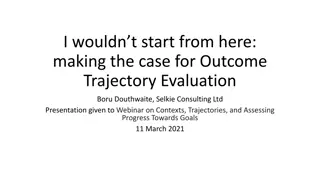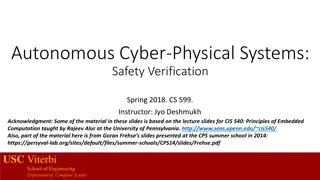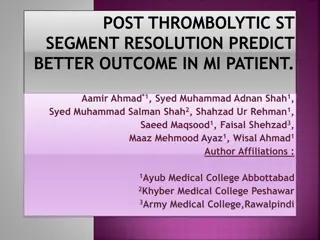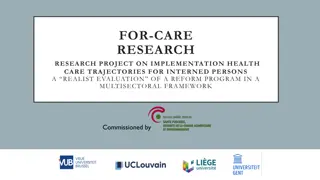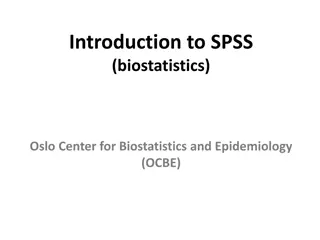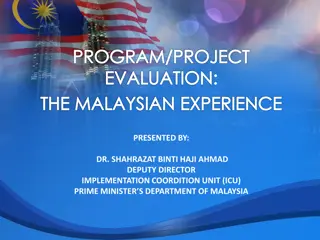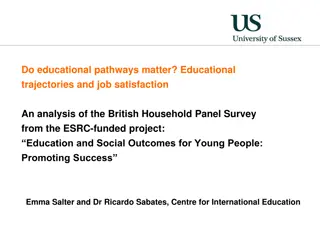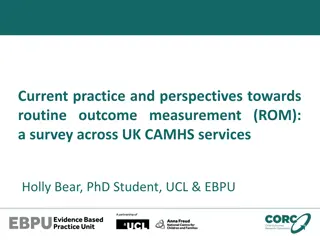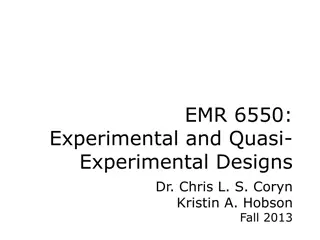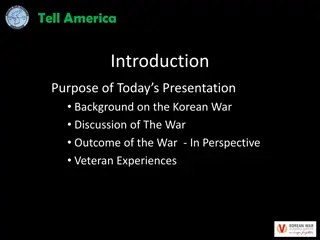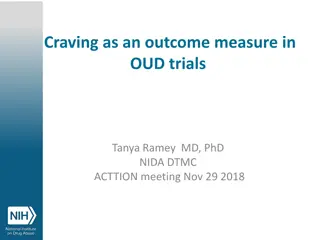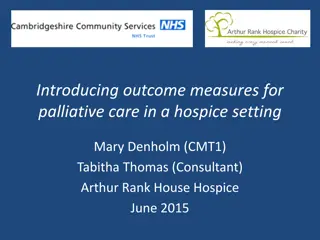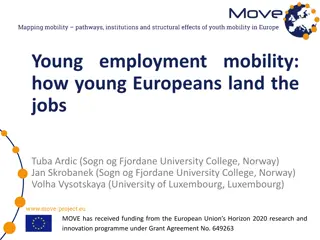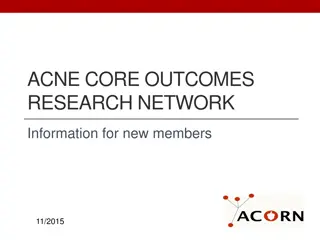Orientation Workshop on Outcome-Based Education and Accreditation
Outcome-Based Education (OBE) and Accreditation as tools for continuous improvement, presented by the National Board of Accreditation (NBA). Join Chairman Anil Sahasrabudhe at IIT Kharagpur on August 16, 2023.
2 views • 10 slides
Student-Centric Outcome-Based Education
Explore Outcome-Based Education (OBE) by Prof. Urmila Patil, focusing on student-centric teaching and learning methodology with clear objectives and outcomes. Discover how OBE enhances curriculum delivery and assessment.
1 views • 30 slides
Understanding Participation Requests in Community Development
Participation Requests offer community groups the opportunity to have a greater say in decisions and services that impact their community. They enable people to engage, voice their opinions, influence policy development, and seek alternatives for better outcomes. These requests are outcome-focused a
3 views • 10 slides
Understanding Outcome-Based Education (OBE) and Quality Improvement Framework
Outcome-Based Education (OBE) focuses on what students should achieve, captured in Program Outcomes (POs) and Course Outcomes (COs). The process involves curriculum design, teaching methods, assessment of attainment, and continuous quality improvement. Quality in education is defined by clearly stat
5 views • 115 slides
Real-world Evidence (RWE) Solutions Market Worth $4.9 billion by 2029
The large share of this segment is mainly attributed to the growing amount of medical data generated in hospitals and the increasing dependence of outcome-based studies on real-world data. EHRs are the most commonly used form of healthcare database that helps in conducting outcome-based studies.
0 views • 2 slides
Introduction of Outcome Measurement Tools for ASF Families Autumn 2023
The Department for Education is implementing outcome measurement tools for families accessing the Adoption Support Fund (ASF). These tools aim to track progress and impact without sharing any identifying data, helping to evaluate the overall effectiveness of ASF interventions. Families will experien
2 views • 7 slides
Understanding Projectile Motion: Components and Trajectories
Projectile motion involves the horizontal and vertical components of motion, where objects follow parabolic trajectories under the influence of gravity. The horizontal and vertical motions are independent of each other, leading to a variety of curved paths. This phenomenon is illustrated through exa
1 views • 13 slides
Digital Health Technology-Derived Clinical Outcome Assessments in Regulatory Decision-Making
This session discusses the landscape of DHT-derived novel endpoints in clinical research, focusing on considerations for regulatory decision-making. It explains the use of digital health technology in clinical outcome assessments and highlights the potential benefits of digitally collected COAs, suc
0 views • 42 slides
Outcome-Based Education System and Bloom's Taxonomy in Engineering Education
Dr. Muhammad Mohsin Aman discusses a new system of accreditation focusing on Outcome-Based Education (OBE) in engineering education. The presentation covers Bloom's Taxonomy, OBE accreditation advantages, Washington Accord, engineering attributes, PEC and NED roles, educational objectives, learning
1 views • 61 slides
Understanding Prognosis in Traumatic Brain Injury
Prognosis in traumatic brain injury is influenced by various factors such as population characteristics, impairment levels, and time frames. Predicting short-term and long-term outcomes is crucial for effective patient care, financial planning, and resource utilization. Common outcome measures inclu
0 views • 46 slides
Analysis of Single Component Assessment Exam Feedback for S112 Module
The assessment strategy for the S112 module involves a single exam component alongside several TMAs. Findings show little gaming of the system, with most students submitting assignments. Exam performance correlates with the number of assignments submitted. The outcome of the module seems to be affec
1 views • 27 slides
Understanding Outcome-Based Accreditation for Educational Institutions
Gain insights into the importance of accreditation for educational institutions and the continuous improvement process it entails. Today's program focuses on Outcome-Based Accreditation, providing essential knowledge and tools for faculty and institution heads. Speakers include experts from the Nati
0 views • 30 slides
Understanding Outcome-Based Education and Accreditation in Higher Education
Outcome-Based Education (OBE) is a process that focuses on high-order learning and mastery rather than course credits accumulation. Globalization has shifted education towards building learner competencies for the rapidly changing workplace. This framework emphasizes Vision, Mission, Program Educati
0 views • 61 slides
Progress Update on Outcome 12: Public Service Development
Implementation progress report on Outcome 12 focusing on achieving an efficient, effective, and development-oriented public service. Key priorities, achievements, challenges, and remedial actions are highlighted, along with a review of the impact indicators for the Medium-Term Strategic Framework. T
5 views • 46 slides
Role and Responsibilities of Chairman in Outcome-Based Accreditation Workshops
In outcome-based accreditation workshops, the Chairman plays a crucial role in leading evaluation teams, chairing meetings, harmonizing team comments, and ensuring adherence to visit schedules. They verify institutional records, conduct stakeholder meetings, finalize evaluation reports, and conduct
0 views • 22 slides
Understanding Outcome-Based Education (OBE) in Accreditation Processes
Outcome-Based Education (OBE) is a crucial aspect in accreditation processes, focusing on defining learning outcomes and aligning curriculum, instruction, and assessment to ensure students achieve essential skills. OBE is not just for accreditation but also about enhancing the quality of education.
0 views • 110 slides
Understanding Outcome-Based Education in Engineering Programs
Outcome-Based Education (OBE) focuses on assessing student learning outcomes and program effectiveness in fields like engineering. It aims to produce graduates who meet industry needs, exhibit proficiency in applied knowledge, and demonstrate essential skills and ethical values. OBE involves definin
0 views • 30 slides
Outcome Based Learning in Transformative Higher Education
Explore the implementation of Outcome Based Learning in higher education, focusing on competencies, course outcomes, programme objectives, and educational goals for holistic development. An in-depth technical session featuring prominent educators highlights the importance of aligning learning outcom
0 views • 32 slides
Helping Your Trainee Prepare for ARCP & ESSR March 2021
Annual Review of Competence Progression (ARCP) is crucial for assessing a trainee's progress, determining competency, and providing feedback. Understanding ARCP details, outcomes, and the panel's role is essential. Trainees should aim for satisfactory progress to avoid additional training time. The
0 views • 25 slides
Community Programs for Outcome Data Analysis in Stem Cell Transplantation
A suite of community-contributed programs is utilized by the British Society of Blood and Marrow Transplantation at Guy's Hospital to analyze demographic and survival data related to stem cell transplantation. The programs aim to produce outcome tables and graphs that aid in retrospective studies, i
0 views • 13 slides
Rethinking Program Evaluation: Embracing Outcome Trajectories
Program evaluators are encouraged to shift focus from the traditional program theory of change to exploring outcome trajectories, which consider the broader context and interlinked changes over time. This approach offers a more insightful understanding of program outcomes and their evolution. An exa
0 views • 18 slides
Trajectory Data Mining and Classification Overview
Dr. Yu Zheng, a leading researcher at Microsoft Research and Shanghai Jiao Tong University, delves into the paradigm of trajectory data mining, focusing on uncertainty, trajectory patterns, classification, privacy preservation, and outlier detection. The process involves segmenting trajectories, ext
0 views • 18 slides
Safety Verification Using Barrier Certificates in Autonomous Cyber-Physical Systems
Safety verification in autonomous cyber-physical systems involves the use of barrier certificates, which act as safety invariants for continuous dynamical systems. These certificates establish invisible barriers that trajectories cannot cross, ensuring system safety. By defining strict barrier condi
1 views • 21 slides
Thrombolytic ST Segment Resolution Predicts Better Outcome in MI Patients
Acute myocardial infarction (AMI), commonly known as a heart attack, occurs when blood flow to a part of the heart is blocked, leading to heart muscle injury. Resolution of ST segment elevation on electrocardiogram after thrombolytic therapy can predict final infarct size, left ventricular function,
0 views • 24 slides
Implementation of Health Care Trajectories for Interned Persons: Realist Evaluation of a Reform Program in a Multisectoral Framework
This research project focuses on evaluating the reform program for the care of Mentally Disordered Offenders (MDOs) within a context of broader mental health care reforms. The study explores governance structures, stakeholder perspectives, collaboration factors, and the experiences of MDOs and their
0 views • 27 slides
Master's in Language & Literacy: Trademark Outcome and Alignment with ILA Standards
The Language & Literacy Master's specialization aims to equip students with essential skills to become literacy leaders through in-depth knowledge and practical application of literacy methods. The program emphasizes the importance of sustaining professional collaboration and improving diverse learn
0 views • 17 slides
Introduction to SPSS Biostatistics Course at Oslo Center for Biostatistics and Epidemiology
This SPSS biostatistics course offered by Oslo Center for Biostatistics and Epidemiology (OCBE) is divided into three parts, covering descriptive statistics, continuous outcome variables, and binary outcome variables using data from the Caerphilly study. Participants will learn how to open datasets,
0 views • 52 slides
Enhancing Program and Project Evaluation: Insights from Malaysia
In the presentation by Dr. Shahrazat Binti Haji Ahmad, Deputy Director of the Implementation Coordination Unit at the Prime Minister's Department of Malaysia, the focus is on the importance of outcome-based approaches in evaluating program and project performance. The Malaysian government emphasizes
0 views • 15 slides
Impact of Educational Pathways on Job Satisfaction: Insights from British Household Panel Survey
Explore the relationship between educational trajectories and job satisfaction using data from the British Household Panel Survey. The study examines gaps in existing research, presents a theoretical model, utilizes BHPS data from 1991 to 2010, and analyzes educational trajectories, socio-demographi
0 views • 15 slides
Understanding Probability of Compound Events
Compound events involve multiple outcomes occurring together, such as independent events where one outcome does not affect another, and dependent events where one outcome affects the other. Complement sets, card probabilities, and mutually exclusive events are also discussed, providing a comprehensi
0 views • 15 slides
Understanding Post-School Outcome Goal Statements in Education
Secondary transition involves a coordinated set of activities to facilitate academic and functional achievement, preparing students for post-school activities like postsecondary education, employment, or independent living. Transition services must begin by age 16 and include measurable postsecondar
0 views • 27 slides
Survey on Routine Outcome Measurement in UK CAMHS Services
This study by Holly Bear, a PhD student at UCL & EBPU, explores the current practices and perspectives towards routine outcome measurement (ROM) in UK Child and Adolescent Mental Health Services (CAMHS). The research delves into the barriers and facilitators to utilizing outcome measurement in pract
0 views • 18 slides
Quasi-Experimental and Interrupted Time-Series Designs Overview
Explore the various quasi-experimental designs, control groups, pretests, and outcome patterns in research methodologies. Understand the implications of different outcome patterns on causal interpretation and validity threats in experimental studies.
0 views • 31 slides
Overview of the Korean War: Background, Discussion, and Outcome
This presentation delves into the background of the Korean War, highlighting the historical context from the Korean Peninsula's division after World War II to the outbreak of the conflict in 1950. It discusses the involvement of North and South Korea, as well as key players like the United States, t
0 views • 15 slides
Insights from BCS70 Study: Births, Families, and Cognitive Trajectories
The British Cohort Study of 1970 (BCS70) provides valuable data on over 17,000 babies born in the UK. The study covers various aspects such as childhood development, family formation, and adult identity. Key findings include early unequal cognitive trajectories and high mental distress among cohorts
0 views • 18 slides
Understanding Craving as an Outcome Measure in OUD Trials
Craving plays a vital role in substance use disorder (SUD) diagnosis, with intense desires or urges triggered by environmental cues. The focus is on identifying and validating the best craving measure for OUD clinical trials. Near-term goals include qualifying craving as a Clinical Outcome Assessmen
0 views • 12 slides
Outcome Measures in Palliative Care: Introducing IPOS Questionnaire
Outcome measures in palliative care play a crucial role in ensuring quality of life for patients. This study introduces the Integrated Palliative Care Outcome Scale (IPOS) questionnaire as a tool to assess patient well-being, symptoms, and concerns. The primary objectives include implementing and au
0 views • 15 slides
Exploring Young Europeans' Employment Mobility Trajectories
This research delves into the mobility trajectories of young Europeans in landing jobs, examining the gateways, reliance factors, job choices, and resources utilized. The study differentiates between bonding and bridging social capital types and explores how familial ties, friendships, diaspora, and
0 views • 10 slides
Instant Travel Time Estimation with Sparse Trajectories
This research by Dr. Yu Zheng aims to estimate travel time on road networks instantly using historical and current trajectories generated by vehicles. The methodology involves a context-aware tensor decomposition approach, optimal concatenation, and frequent trajectory pattern mining to address chal
0 views • 21 slides
ACORN Core Outcomes Research Network Overview
ACORN (ACNE CORE OUTCOMES RESEARCH NETWORK) was established in July 2013 with the aim of creating a standardized set of core outcome measures for use in acne clinical trials. Led by key individuals such as Diane Thiboutot, Jerry Tan, and Alison Layton, ACORN focuses on global representation, stakeho
0 views • 10 slides
